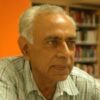India–Largest Democracy and Its Responsibilities
TRANSCEND MEMBERS, 17 Jul 2023
Dr. Ravi P. Bhatia – TRANSCEND Media Service
India is a big country and a democracy— people call India the biggest democracy in the world. It has 28 states — some big some small. The largest state UP (Uttar Pradesh) in north India has a population of about 230 million, larger than populations of many countries of the world.
The country as a whole has a population of more than 1.4 billion people which makes it the largest world population— it has surpassed China’s population which was earlier the world’s largest.
Census figures reveal that there are more males than females in India. This is an interesting fact and many theories are offered to understand why it is so. One reason being gender bias which is generally offered in such situations— male children are better fed and better taken care of by their parents. The feeling is that daughters will become part of different families upon marriage whereas male children— boys will remain within the family — in fact they have a responsibility to take care of the family , when parents become old and weak.
The government at the central level consists of Prime Minister, other Ministers etc whereas at the state level, Chief Minister is at the helm of a State. There are various political parties in India — the important ones are BJP (Bharatiya Janta Party), Congress Party and several state level parties some of which are supported by the Left parties.
As is widely known , the Prime Minister Mr Narendra Modi belongs to the BJP and is largely supported not only by the Indian people , but also by international leaders — Presidents or Prime Ministers . He travels widely and is felicitated by world leaders including by USA , Australia and European nations.
Although the Prime Minister holds office for five years — Modi has been in office from 2014 because of his personality and support for the democratic principles across the country as a result of which his party BJP has been winning elections in the country. The other important party is the Congress party that has formed governments in some Indian states including in Rajasthan and Karnataka.
With such a large country as India and elections being held in some state or the other, there is a visible political environment. State level leaders are required to canvas support for their parties. It is not surprising that frequently political violence also takes place. Important leaders like Mr Modi and others travel throughout the country and hold what are being termed as — Road Shows seeking support for their parties . Although both the central and state level governments are in office for five years, in many cases at the state level, governments fall before completing five years and thus fresh elections have to be frequently held.
As a result of the political situation , violence often takes place. How to avoid this situation and avoid electioneering is often debated in the country and in the Press but no viable solution has been found.
Unfortunately, not only is there political violence, there is also disquiet due to environmental factors like excessive rainfall or powerful cyclones that cause destruction and devastation. Governments both at the central and states provide succour and support but often this is insufficient and people have to learn to live in such unstable situations.
There is no real remedy to tackle such situations except to not lose heart and continue to work for a stable environment and people’s welfare. One advantage of such situations is that people and some relevant institutions learn to work in unison in a holistic manner to work for welfare of large sections of our population under difficult conditions.
Thus, even a tragic situation like cyclones or heavy rainfall helps people to learn to work together for the benefit and welfare of people. Tragedy is also a learning experience for such people.
I am not supporting or welcoming tragic situations but only reaffirming what conscious people could do and often do.
______________________________________________
 Dr Ravi P Bhatia is a member of the TRANSCEND Network for Peace Development Environment, an educationist, Gandhian scholar and peace researcher. Retired professor, Delhi University. His new book, A Garland of Ideas—Gandhian, Religious, Educational, Environmental was published recently in Delhi. ravipbhatia@gmail.com
Dr Ravi P Bhatia is a member of the TRANSCEND Network for Peace Development Environment, an educationist, Gandhian scholar and peace researcher. Retired professor, Delhi University. His new book, A Garland of Ideas—Gandhian, Religious, Educational, Environmental was published recently in Delhi. ravipbhatia@gmail.com
Tags: Democracy, India, South Asia
This article originally appeared on Transcend Media Service (TMS) on 17 Jul 2023.
Anticopyright: Editorials and articles originated on TMS may be freely reprinted, disseminated, translated and used as background material, provided an acknowledgement and link to the source, TMS: India–Largest Democracy and Its Responsibilities, is included. Thank you.
If you enjoyed this article, please donate to TMS to join the growing list of TMS Supporters.

This work is licensed under a CC BY-NC 4.0 License.